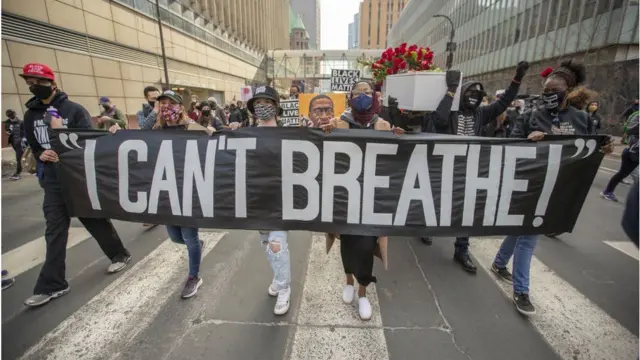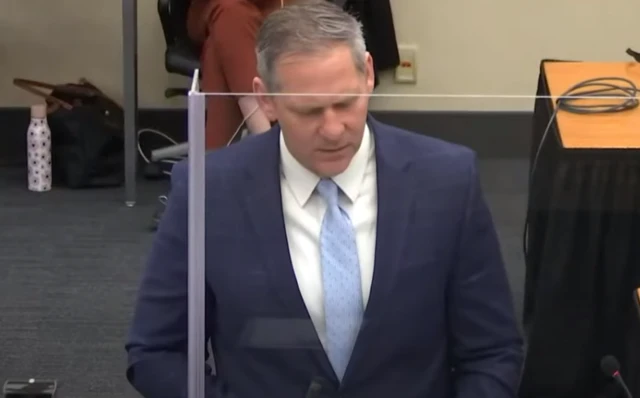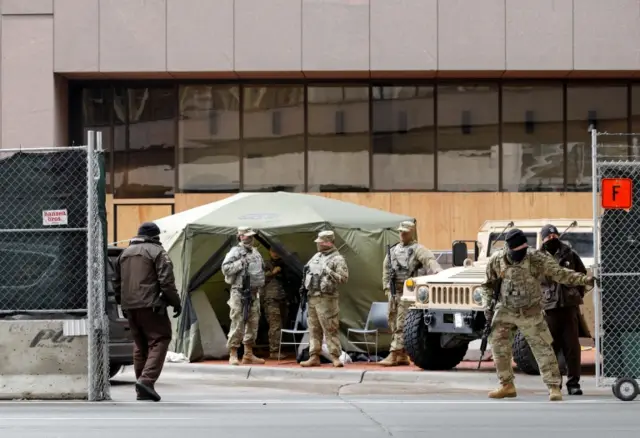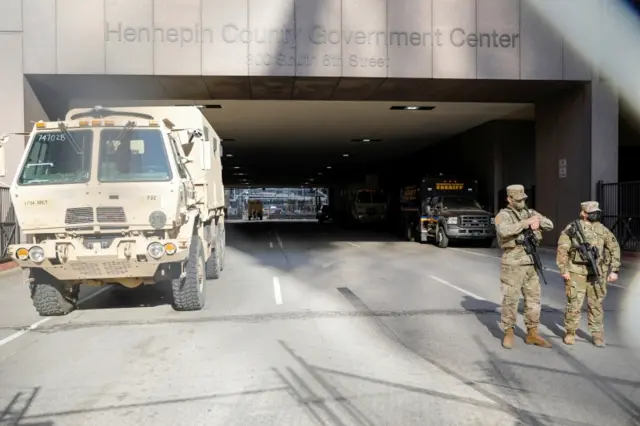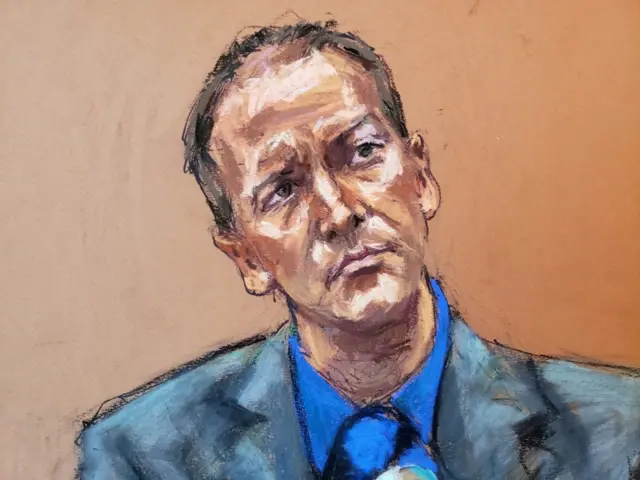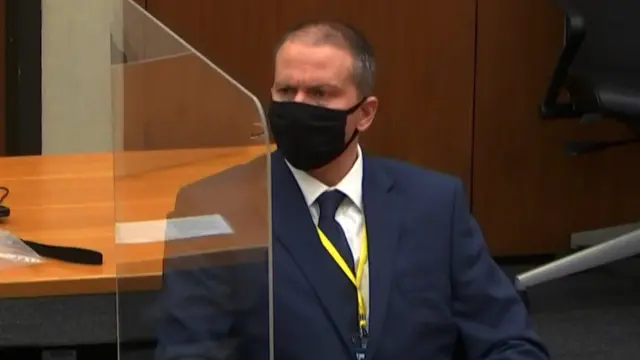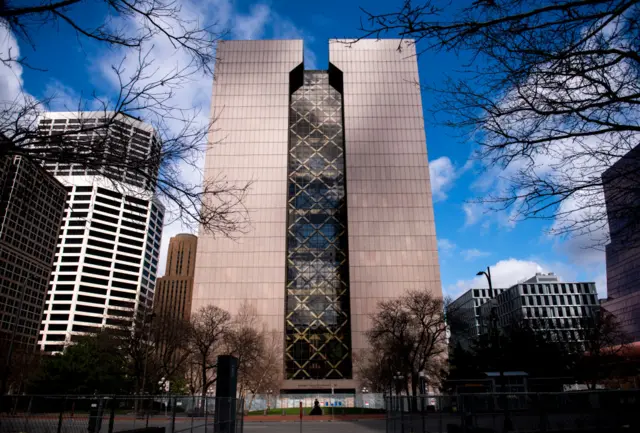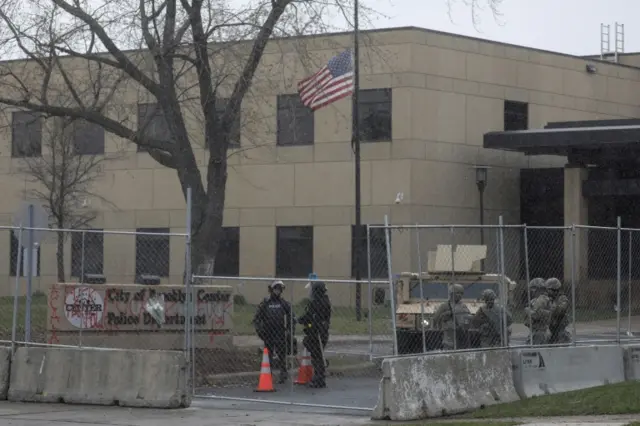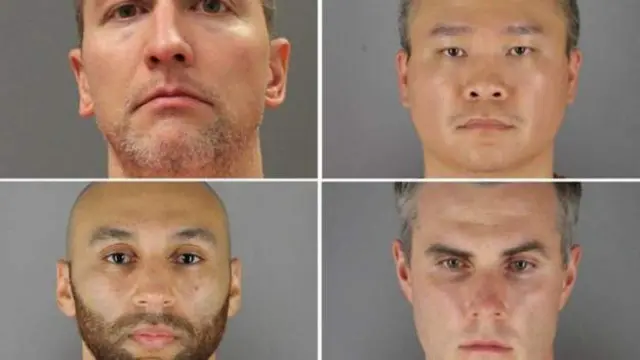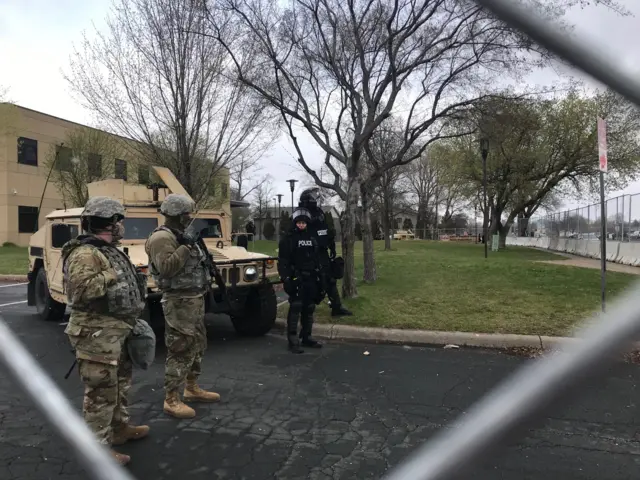'Nine minutes and 29 seconds'published at 16:01 BST 19 April 2021
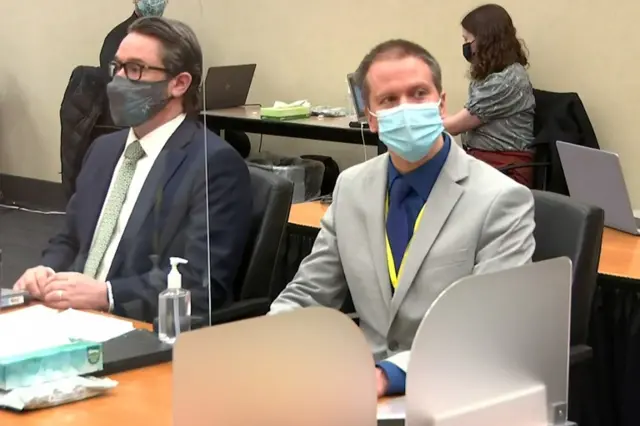 Image source, Reuters
Image source, ReutersDerek Chauvin listens in to the prosecution's closing arguments
Schleicher reminds the jury of the amount of time the prosecution has argued Chauvin had his knee on Floyd’s neck.
"Nine minutes and 29 seconds," he says. “During this time, George Floyd struggled, desperate to breathe."
"The force was too much. He was trapped with the unyielding pavement underneath him, as unyielding as the man who held him down. Pushing him - a knee to the neck, a knee to the back.
"Twisting his fingers, holding his legs for nine minutes and 29 seconds - the defendant's weight on him."
The amount of time Chauvin knelt on Floyd's neck is crucial to the prosecution's case.
Here's what we know happened in the final moments of George Floyd's life.
